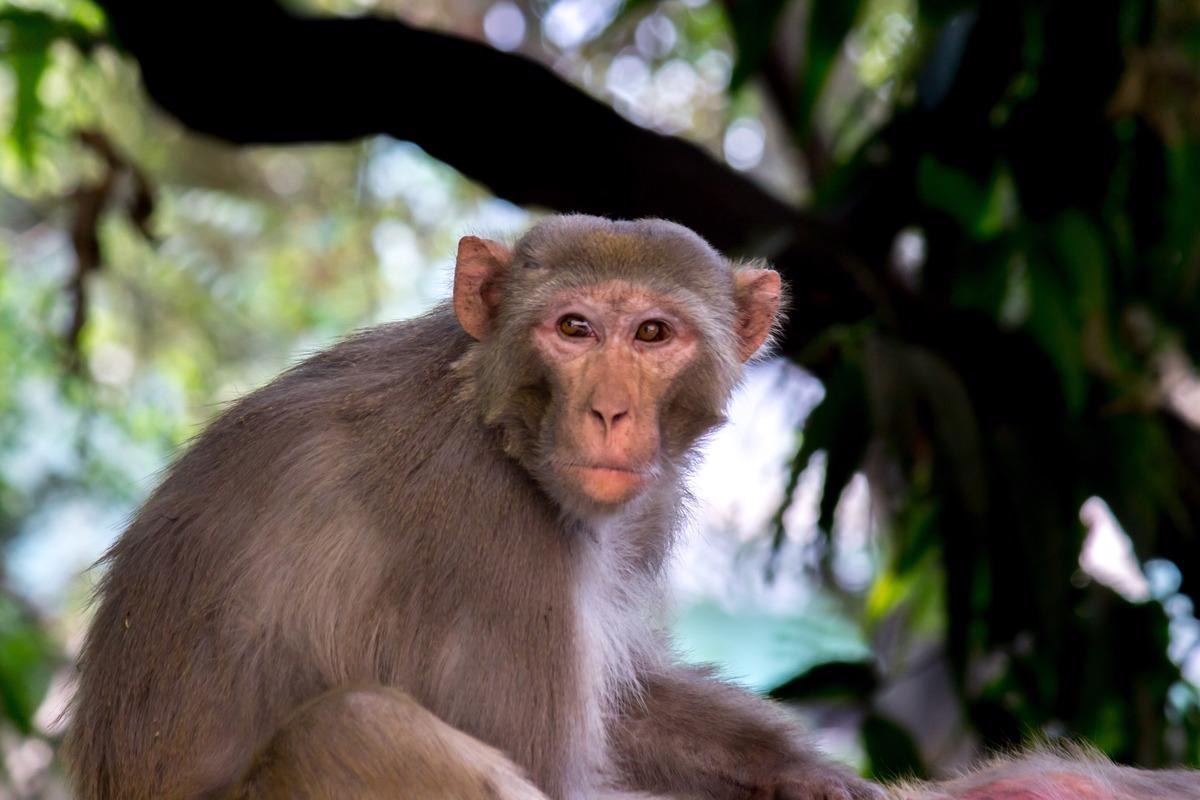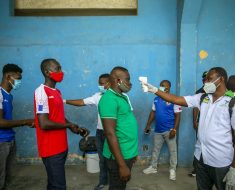A team of scientists from the USA have recently evaluated the effectiveness of a booster dose of the Moderna-developed coronavirus disease 2019 (COVID-19) vaccine and an omicron spike-specific mRNA vaccine in non-human primates that are primed with the Moderna vaccine.
The findings indicate that both vaccines induce a similar neutralizing response against the omicron variant and that the omicron spike-specific vaccine does not provide any added benefit following booster immunization.
 Study: mRNA-1273 or mRNA-Omicron boost in vaccinated macaques elicits comparable B cell expansion, neutralizing antibodies and protection against Omicron. Image Credit: Robert Ross/Shutterstock
Study: mRNA-1273 or mRNA-Omicron boost in vaccinated macaques elicits comparable B cell expansion, neutralizing antibodies and protection against Omicron. Image Credit: Robert Ross/Shutterstock
The study is currently available on the bioRxiv* preprint server.
Background
Among currently available COVID-19 vaccines, mRNA-based vaccines developed by Pfizer/BioNTech and Moderna have shown about 90% efficacy in preventing severe acute respiratory syndrome coronavirus 2 (SARS-CoV-2) infection and severe COVID-19. However, a gradual reduction in vaccine efficacy has been observed against newly emerging variants of concern (VOC), including the omicron variant.
The omicron variant of SARS-CoV-2, which was detected for the first time in South Africa in November 2021, contains a heavily mutated genome, with around 30 mutations in the spike protein. Studies have shown that the variant is highly resistant to neutralization by vaccine-induced antibodies. As a strategy to improve vaccine efficacy, many countries have started immunizing the at-risk population with a third booster dose of the vaccines.
In the current study, scientists have evaluated whether a booster dose of an omicron spike-specific mRNA vaccine can induce a more robust immune response against the omicron variant compared to the Moderna vaccine.
Study design
The study was conducted on non-human primates that were primed with two doses of Moderna vaccine at week 0 and week 4. After 9 months, the animals were boosted with either the Moderna vaccine (homologous boosting) or an mRNA-based omicron spike-specific vaccine (heterologous boosting).
Furthermore, the animals were infected with the omicron variant 4 weeks after booster vaccination. The blood and respiratory samples were collected from the animals at different time-points to measure the levels of binding and neutralizing antibodies. In addition, the replication of omicron in the upper and lower respiratory tracts and lung pathologies were investigated.
Antibody responses
The highest levels of anti-spike and anti-spike receptor-binding domain (RBD) binding antibodies were observed in serum after 6 weeks of Moderna prime vaccination against the wildtype SARS-CoV-2, followed by the delta, beta, and omicron variants. However, a significant reduction in titers against all tested variants was observed at week 41.
After both homologous and heterologous booster vaccination, anti-spike antibodies returned to the same levels as observed at week 6. However, the titers against the omicron variant remained lower than those against other variants even after heterologous boosting.
A trend similar to binding titers was observed for neutralizing antibodies at weeks 6 and 41 following the Moderna prime vaccination. After both homologous and heterologous booster vaccination, a significant induction in neutralizing titers against the beta and omicron variants was observed, which was higher than that observed at week 6 post-prime vaccination.
Regarding mucosal immune responses, both homologous and heterologous booster vaccination caused a similar induction in binding and neutralizing titers against the omicron variant in respiratory samples.
Spike-specific memory B cell frequency following booster vaccination
The level of spike-specific memory B cells was measured at week 6 post-prime vaccination. Out of all of the B cells, about 63% showed the ability to bind to both the wild-type spike and the omicron spike.
Two weeks after boosting with the Moderna vaccine, about 71% of total spike-specific B cells showed dual specificity against both wildtype and omicron spike proteins. Similarly, about 81% of total spike-specific B cells showed dual specificity against both wildtype and omicron spike proteins 2 weeks after boosting with omicron mRNA vaccine. In addition, both homologous and heterologous booster vaccination showed comparable efficacy in inducing memory B cells specific to the wild-type virus and beta and delta variants.
Protective efficacy of the vaccines
The vaccinated animals were challenged with SARS-CoV-2 omicron 4 weeks after the booster and compared with unvaccinated, omicron-infected control animals. The findings revealed that both booster vaccines caused complete inhibition of viral replication in the upper respiratory tract by day 4 post-challenge. In addition, both booster vaccines caused complete removal of the infectious virus at day 2 post-challenge.
Regarding lung pathologies, no viral antigen was detected in the lungs of boosted animals. In these animals, only minimal to mild/moderate histopathological changes were observed in the lungs. In contrast, unvaccinated animals showed moderate to severe lung pathologies at day 8 post-challenge.
Study significance
The study reveals that the booster immunization with the Moderna vaccine is capable of inducing robust neutralizing titers against the omicron variant and preventing severe omicron infections in non-human primates. Importantly, the vaccine designed specifically against the omicron variant has been shown to provide similar protection as observed for the Moderna vaccine.
*Important notice
bioRxiv publishes preliminary scientific reports that are not peer-reviewed and, therefore, should not be regarded as conclusive, guide clinical practice/health-related behavior, or treated as established information.
- Gagne M. 2022. mRNA-1273 or mRNA-Omicron boost in vaccinated macaques elicits comparable B cell expansion, neutralizing antibodies and protection against Omicron. bioRxiv. doi: https://doi.org/10.1101/2022.02.03.479037 https://www.biorxiv.org/content/10.1101/2022.02.03.479037v1
Posted in: Medical Research News | Medical Condition News | Disease/Infection News
Tags: Antibodies, Antibody, Antigen, B Cell, Blood, Cell, Coronavirus, Coronavirus Disease COVID-19, covid-19, Efficacy, Frequency, Genome, Homologous, Immune Response, Immunization, Lungs, Omicron, Protein, Receptor, Respiratory, SARS, SARS-CoV-2, Severe Acute Respiratory, Severe Acute Respiratory Syndrome, Spike Protein, Syndrome, Vaccine, Virus

Written by
Dr. Sanchari Sinha Dutta
Dr. Sanchari Sinha Dutta is a science communicator who believes in spreading the power of science in every corner of the world. She has a Bachelor of Science (B.Sc.) degree and a Master's of Science (M.Sc.) in biology and human physiology. Following her Master's degree, Sanchari went on to study a Ph.D. in human physiology. She has authored more than 10 original research articles, all of which have been published in world renowned international journals.
Source: Read Full Article





